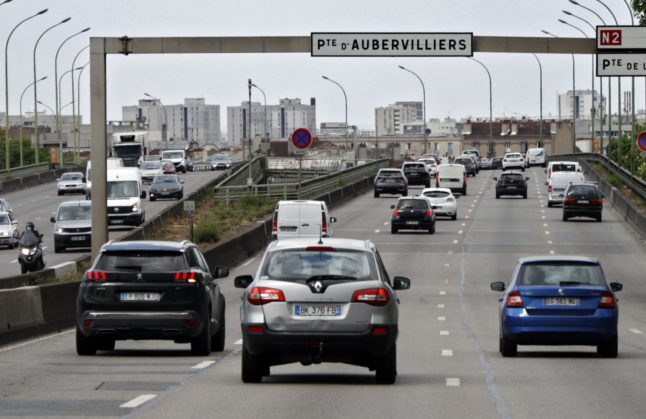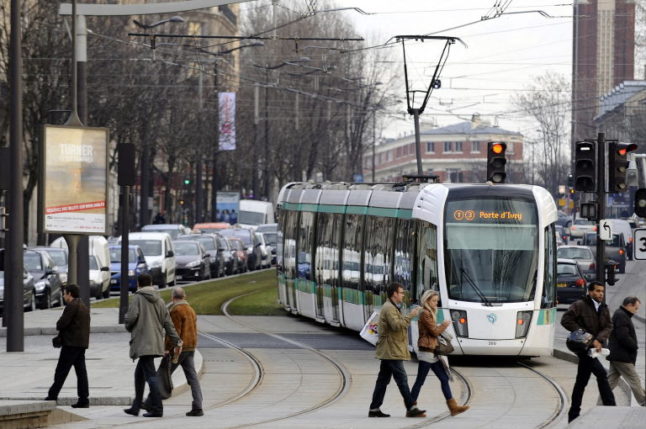Mayor Anne Hidalgo is asking the capital’s residents to vote on the fee hike in February, leaving no doubt about where she stands on the issue.
“We want to say, ‘stop’ to the excesses of car companies,” Hidalgo said.
Launching the initiative, City Hall said the overall space taken up by cars had diminished thanks to its “determined action” but that the average size and weight of cars had gone up because of sport utility vehicles (SUVs).
The vote will be the second city-wide referendum on urban matters, after residents in April voted to ban rental e-scooters from the capital.
“I think it’s really good to try and limit the number of big cars, be it SUVs or other big cars,” said Arnaud Jaccard, a doctor. “They need more petrol and they pollute more.”
WWF, an NGO, also backed the move, saying the carbon footprint of building and running SUVs made them an “aberration” at a time of worsening climate change.
The contribution of SUVs to CO2 emissions growth was second only to the aviation sector, said Arnaud Gilles at WWF.
“We can’t allow SUVs to be the future of mobility, especially in cities,” said Pierre Leflaive, at Reseau Action Climat, an environmental association.
Singled out
But others, feeling that SUVs were being unfairly singled out, argued that they were often used as family cars carrying several passengers.
“If we’re talking about doing away with cars that can carry five people, then I think it’s going to be a problem,” said pensioner Dominique Cathelin. “There are more pressing issues,” she said.
Ahmed Desouky, a company driver with an SUV, said he felt punitive parking fees were unlikely to put a dent in the use of the heavy vehicles.
“This is Paris,” he said. “There’s no shortage of visitors and people with money.”
Hidalgo said this week the fee increase would be “very significant”, without giving a figure.
City Hall later said it would slap the surcharge on internal combustion engine cars or hybrids of over 1.6 tons, and electric cars over two tonnes.
SUV owners with residential parking permits issued by the city would be exempt.
In April, Parisians voted overwhelmingly to banish for-hire electric scooters from the streets of the French capital.
However, turnout for the referendum was just 100,000 people, representing under 7.5 percent of the capital’s registered voters.
‘Honest’
Victor Dupin, an engineer, said it was “not necessarily very honest” of authorities to ask for popular approval for measures they could have taken by themselves.
“It’s like they want to absolve themselves of their political responsibility,” he said.
Socialist Hidalgo, who has been Paris mayor for nearly a decade, has made a transformation of the capital’s mobility mix a priority.
Her twin policy of creating an unprecedented network of cycling paths while banning cars from key central areas has earned applause and condemnation in equal measure.
Her critics have recently found ammunition in her trip to Tahiti, a French overseas territory and venue for surfing competitions in the 2024 Summer Olympics.
The spat came after Hidalgo extended a work trip to French Polynesia and New Caledonia – which opponents said was pointless to begin with – for a personal holiday of two weeks which, some said, she tried to camouflage.
Le Monde said she had “given the impression of not fully taking responsibility for being 16,732 kilometres from her city,” noting one video had shown her cycling along the Seine when she was in fact in New Caledonia.
“If you gave Anne Hidalgo the choice between more planes and fewer planes, she would choose fewer – except when she wants to go to Tahiti,” said Pierre Chasserey, spokesman for the pro-car association 40 Millions d’Automobilistes.
Commenting on the planned parking fee hike, Chasserey said SUVs represented nearly half of new combustion engine car sales in France last year.
This fact, he said, would make the measure “inapplicable”.



 Please whitelist us to continue reading.
Please whitelist us to continue reading.
Member comments